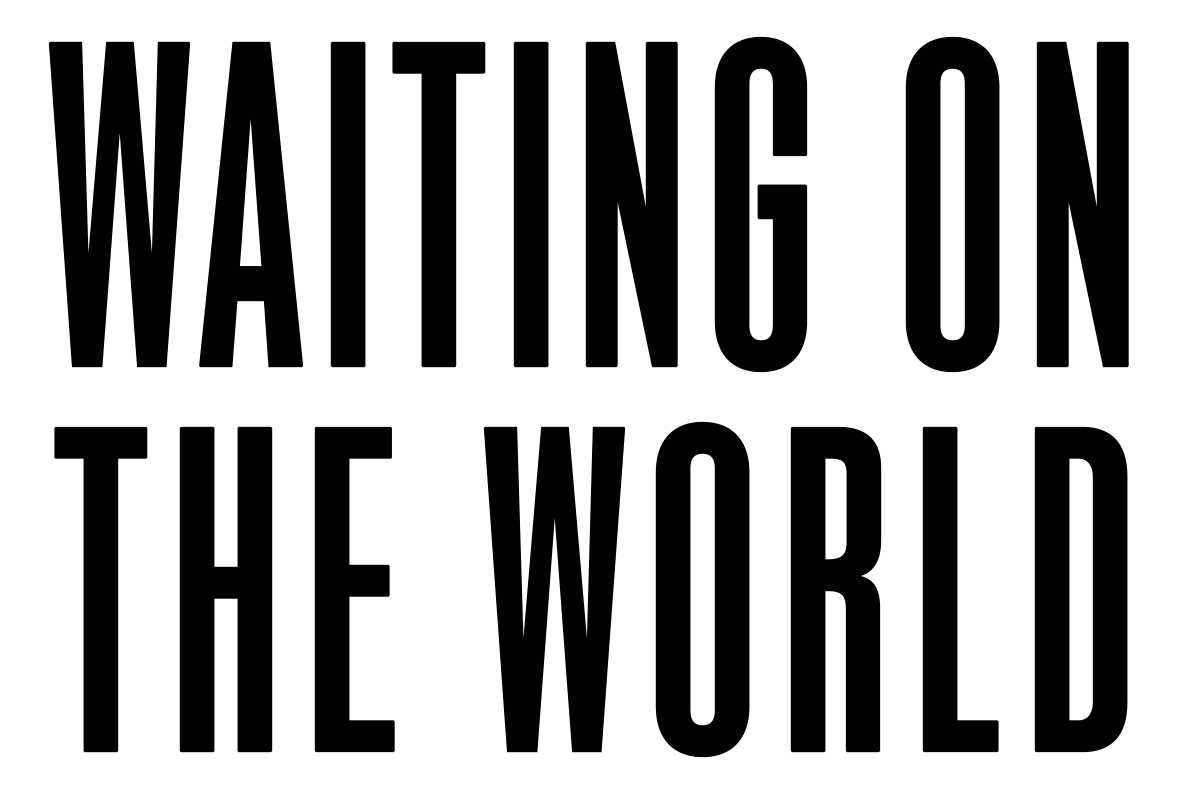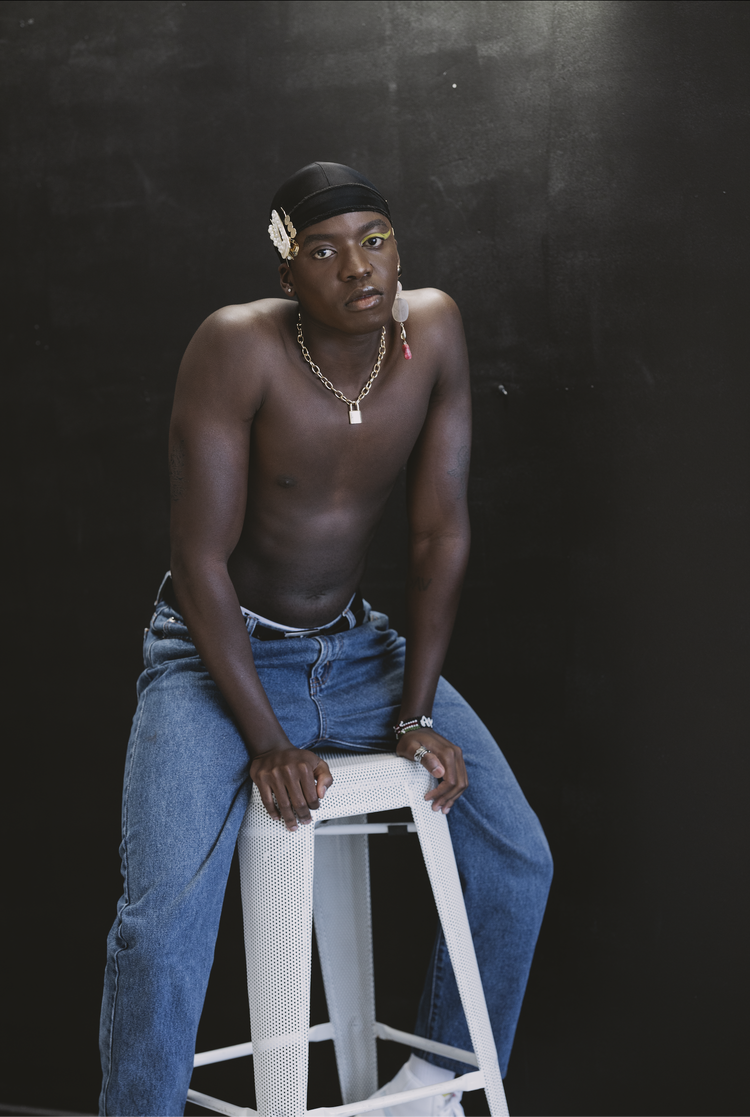Wani Toaishara - Photographer & Performer
Just outside the hustle of Semi Permanent we spoke with Wani, a multidisciplinary artist who is predominantly working in still and motion imagery. He shares both a personal and historical perspective on photography with us. We gain a beautiful insight into the rich tapestry of his process, it becomes apparent that story is the driving force behind everything he does. Wani lives and breathes his art.
HARRI: You work across a range of art forms, including photography and performance what is the thread that connects all your work?
WANI: I love storytelling, but not storytelling where I tell other peoples stories — because only people can best represent themselves. But more so, how do I fit within someone else's story? So I do a lot of internal work How does my world connect with yours? What does that look like? I'm really conscious, when I'm behind the camera, that I'm behind the camera. There's like a relationship there or an engagement there or some kind of agreement there. And it's not just like me pretending to be like this objective, observing your life type of thing, because, I think everyone is positioned, it’s just whether you’re honest about that or not.
HARRI: With my cinematography, I consistently try to get the camera out of the way, so it can be purely about the scene. However, with your photography, it sounds like the camera is something that the photographer and subject are to be aware of?
WANI: Yeah. You're both aware of the fact that the camera is there. I also think a lot of it has to do with how people have come to know the camera and the relationship they've had with the camera. The way I grew up is that the camera is something really, really violent for me. I grew up in the war, so like you’re always getting observed. I've known what it's like to be on that side of the camera and I hate it because you're like, I'm a whole person. Whether it's through colonialism or something more contemporary, like social impact things that are happening - who gets to frame the picture? I really find the idea of the frame interesting and I don't like hiding the fact that the frame exists.
My grandma used to say, a camera captures my soul and it's going to take me away. I thought it was a joke. And then I realized when she was growing up, when they took photos of people, it was to number us and categorize us. It's a real thing and it has real impact and real consequences and I don't shy away from the fact that I took this photo and the power that I hold taking this photo.
HARRI: How do you achieve storytelling within still imagery? Is it what you’re choosing to include in the frame, is the style, the posing of the models?
WANI: For the most part, it’s all encompassing. I love the idea that when somebody looks at a photograph I took, they wonder how we came to that photograph. Because I feel like by the time we get to the click, so much is done, for me, that's the cool stuff. I don't necessarily think of myself as an amazing technical photographer. But, I'm really invested in relationships and people and what it takes to get to a photograph.I think that's the crux of the process of my process. The other aspect is that I just love visual language and I think being neurodivergent like that's how I get the world and that's how the world makes sense to me.
I find it tricky, the idea of representation, because sometimes I wonder what's being represented. Do I want presentation or representation? Do I want to be on TV in the same way I've always seen TV? I want to throw that out and see what's possible.
I’m interested in what a new world could look like. What feels good for you in front of the lens? How do you want to be seen? Is this representative of who you feel you are? That conversation and dialog, sometimes it can be slow and take time.
HARRI: Would you say that the process of the final image is everything, the people, the dialogue?
WANI: Yeah, but also, I have to say I just love photographs. Like, really good photographs.
HARRI: What’s the benefit of different cameras in how you’re able to relate to your subject, does shooting on film help you connect?
WANI: It's kind of a sticky one to answer. I’ve always shot from my iPhone. The first work I entered into an art prize and won, was from an iPhone, which is hilarious, but I just didn't tell anyone.
And then from that our prize I got enough money to buy a proper camera and I think that the R5 had just come out. I was like, this thing would be a beast. But, I didn't have editing software so shooting a thousand photos, that's just way too much. I was not taking much care in the taking of photographs, I was really struggling and having to make myself slow down and be like I'm only going to take 50 frames. It makes you so intentional because it forces you to engage.
I was watching Tyler Mitchell. He was like getting certain skin tones and I was like, Yo, how y'all doing this? And I realized they shot on film. At first you think it's just the colours. But no, they just take their time. They're thinking about lighting more. Because sometimes with digital you can cheat. So, I called up a friend of mine who's a film photographer and shot with him, and I just fell in love.
HARRI: What camera are you working with for film photography?
WANI: I’ve got a Mamiya Rz. It's heavy as hell, but it's amazing. I love, love, love medium format. The film is really expensive, so you can't mess it up.
WOTW TIP: Getting into film photography? An affordable way to start, we recommend a half frame camera with some Kodak Gold.
HARRI: As artists you can multiple things, you can do things that help express yourself in different ways and they all help each other. The fact that you are multi-disciplined how does that impact your photography?
WANI: I never thought much about it before because I think it just kind of came naturally because I've just kind of always made stuff and I wasn't making it commercially or really for anyone. I think covid had a big impact, being mainly a performer to begin with and that constituting a big part of my income and then just being stuck at home.I feel like it gave me more time to go into some of the other stuff.
I think being a writer and performer, the way I write is really visual and sometimes the only way I could express it is visually. And I think photography does that for me. When I'm on a stage, I'm performing whether I want to or not. You have to think about the audience, people are receiving and people are taking time out to receive. Whereas like when you're a photographer, oftentimes you're taught to just know yourself as an observe. But then when you integrate the two, you realize there's a relationship. And like two things can be constant and true at the same time. So for me, I feel like they flow together.
Wani with WOTW at Semi Permanent Sydney 2023
Follow the artist @wanitoaishara
Join our community @waitingontheworld







